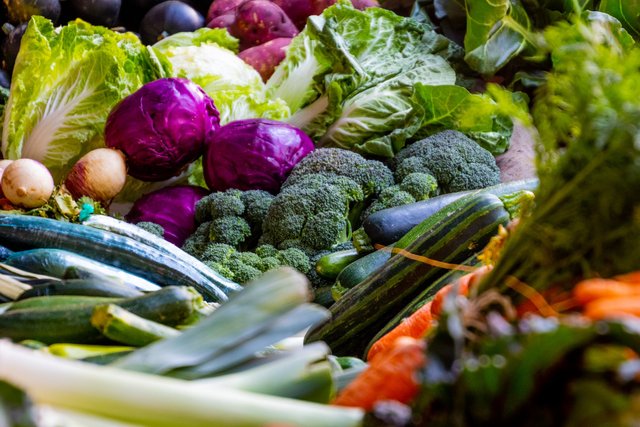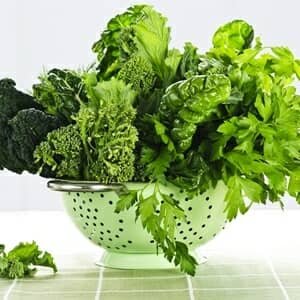
Get the benefits of omega-3s and other nutrients on a plant-based diet.
A plant-based diet is healthier than the typical American diet in many ways.

Some of the many benefits include the fact that a plant-based diet is high in fiber and has lots of antioxidants and tons of phytonutrients that can help reduce the risk of many serious health challenges.
It’s important to know that there is much more to being a vegan or vegetarian than simply excluding meat, fish, and fowl if you’re one of the millions who is considering a dietary change in that direction.
Nutrient deficiencies in omega-3s which are commonly found in meats are not uncommon with many vegetarians/vegans
You could easily be lacking necessary EPA and DHA omega-3 benefits if you are not paying attention to what you eat.
DHA omega-3s benefits are essential to heart health. DHA omega-3s are also one of the most abundant fats in the brain, and are important contributors to mood, memory, and overall brain health. EPA omega-3 benefits are a crucial part when it comes to cardiovascular health as well.
Coldwater fish such as wild salmon, sardines, and tuna are the best natural sources of omega-3s. In terms of marine-based supplements, one fantastic source is calamari oil, which is derived from squid. Both algae and calamari oils are less likely to be contaminated with mercury, pesticides, and other poisons than some fish supplements. Since vegans don't eat fish it is important to your brain and heart health to take omega-3 supplements or eat omega-3 rich food.
Natural Sources of Omega-3s
Flaxseed oil a great source of alpha-linolenic acid (ALA), the form of omega-3 that is found in plant sources. Be sure that your diet contains plenty of green leafy vegetables such as spinach, dark herbs, mustard, and beet greens. Don't forget that wheat germ and walnuts also are high in ALA as well.
My favorite way of getting plenty of omega-3 benefits through ALA food sources is by having a salad made with lots of fresh greens such as spinach, dandelion greens, arugula, parsley, kale, mustard greens, dill, cilantro, wheat germ, and walnuts. I like to top off my salad with a vinaigrette dressing made from flaxseed oil and Bragg's vinegar. It’s really a wonderful way to get those omega-3 benefits, plus the necessary fiber and many other important phytonutrients.
Most people are able to convert ALA into EPA and DHA omega-3s. But as we age, our body's ability to make this conversion can decline. Even if your body’s conversion ability is running at top efficiency, most seniors will generally only be able to turn about 18 percent of the ALA eaten into omega-3 benefits1.
Even if you do eat fish or regularly take a fish oil supplement, it’s always a good idea to add ALA to your diet. A Harvard study concluded that ALA may help improve cardiovascular health through various biological mechanisms—including platelet function, inflammation reduction, endothelial cell activity, and arrhythmia control.
Your Diet May be Missing More Than Just Omega-3 Benefits
There can be a few other deficiencies in those that follow a vegetarian diet. These deficiencies include protein, vitamin B12, and carnitine (along with a few others).
Vegetarians and vegans must be sure to get the important nutrients from the foods they have removed from their diet—meaning they need to find other food sources or supplements. Here is how to make up the deficit and avoid health issues related to these deficiencies.
Be Proactive in Getting Your Protein
Plant sources are the easiest way to address protein deficiency in most vegetarian diets. Some good vegetarian sources for protein include fermented tofu, nuts, and quinoa—a grain that grows in the Andes. In fact, quinoa is just about the only vegetable source that actually contains a balanced set of the essential amino acids. It’s high in fiber, phosphorus, magnesium, and iron and can be used instead of rice in stir fry.
Endeavor to Not Be B12 Deficient
It's important for vegetarians and vegans to consider their requirement for vitamin B12. Meat and dairy are natural sources for this B vitamin, meaning vegans are often low in this crucial nutrient that helps to maintain nervous system function and normal homocysteine levels while also helping to prevent pernicious anemia.
There aren’t any plant sources for vitamin B12, so vegetarians and vegans should take a supplement to get the amounts they need. Fortunately, supplemental B12 is vegan-friendly. It’s a synthetic form called cyanocobalamin.
Remember, it's crucial to have a wide spectrum of B vitamins and not supplement with just one of them. Your best bet is a high-quality multi-nutrient that not only gives you 200 mcg of B12 per day but that also gives you a wide range of other B vitamins—such as 20 mg of thiamine (B1), 20 mg of riboflavin (B2), 40 mg of niacin (B3), 40 mg of B6, and 100 mcg of folic acid or folate (B9).
There are other B vitamins, but keep in mind that a quality multi-nutrient will provide you with a full range of the members of the vitamin B family.
Don't Forget Carnitine
As the name indicates, carnitine comes from meat (carni being Latin for flesh or meat). Lamb and mutton are the best sources for this nutrient that crosses into the mitochondria (the powerhouse of the cells). Carnitine helps at least three things for your body: turn fat into energy, deliver and balance oxygen supplies, and prevent the production of some toxins.
Just like B12, if you're not getting your carnitine from meat, a supplement should be part of your regimen. The body can produce its own carnitine if it has the proper enzymes and co-enzymes, studies have indicated that vegetarians aren’t able to make adequate amounts on their own—which is why supplemental carnitine is essential.
Even meat eaters should look to a full-spectrum carnitine supplement. The good news for vegans is that the carnitine used in supplements is synthetic.
Last, but not least: CoQ10, Taurine, and Alpha Lipoic Acid
Vegetarians and vegans need to be diligent about supplementing with coenzyme Q10 (CoQ10). It's not uncommon for blood levels of this critical nutrient, to have low levels in people that are vegetarian and are not taking a CoQ10 supplement.
Vegetarians and vegans also need to be sure they are taking taurine and alpha lipoic acid as a supplement. Just like B12 and carnitine, a synthetic form of these nutrients is available if you're on a plant-based diet. Remember, that the gelatin used for most supplement capsules are made from an animal source, so vegans will want to look for supplements that use “veggie caps.”
Keep in mind that adopting a vegetarian diet can be a healthy move, but be smart about it. You can compromise your health if you're not careful about getting the critical nutrients you need from other sources.
Resources
- 1Linda M Arterburn et. al. Am J Clin Nutr. 2006 Jun;83(6 Suppl):1467S-1476S.
Posted from my blog with SteemPress : https://sharehealthyinfo.com/nutrition/getting-omega-3-benefits-while-on-a-plant-based-diet/